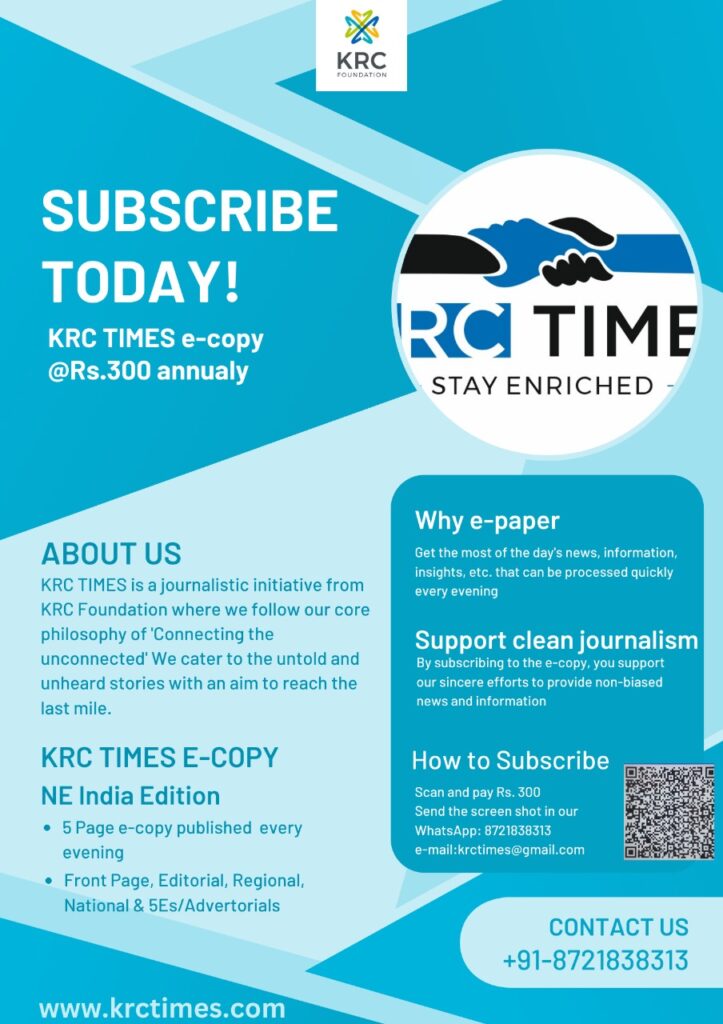Whether it is the issue of electoral bonds the liquor policy of Delhi or many others involving politicians, bureaucrats and even private individuals, perhaps after some hiatus, the ghost of corruption is back haunting the national discourse at present
 KRC TIMES Desk
KRC TIMES Desk

Siddharth Mishra
Whether it is the issue of electoral bonds the liquor policy of Delhi or many others involving politicians, bureaucrats and even private individuals, perhaps after some hiatus, the ghost of corruption is back haunting the national discourse at present. People may have different perceptions and views on the prevalence of corruption in India depending upon their experiences, knowledge or even interests. Some may think that corruption is highly prevalent within the Government functionaries and in the political class, whereas others may opine that corruption of some form or the other exists in every sphere including in the private sector, even in small businesses. While there may be some others who may justify corruption and yet others who vehemently criticize it. Does it mean that it is how one looks at the scenario that shapes the societal perspectives in this regard and if it is treated as true, does it require looking at the whole issue from different perspectives?
Speaking honestly, corruption seems to be prevalent in all walks of life irrespective of whether it is the public or private sector. There is some other form of corruption visible everywhere in this country. However, the form of corruption that usually becomes the talk of the town is the Governmental or the political class corruption. By that account, for that matter, should even a rickshaw puller or a vegetable or fruit vendor asking for more than the genuine price or overcharging not amount to corruption? Should not the boss, in a private enterprise, dominating, harassing or seeking undue favours from subordinates as a condition of promotion, be seen as corrupt? Ironically, the law does not seem to be treating such attitudes as, falling in the purview of, and, requiring to be prohibited by corruption law, though perhaps, the law might be providing some other type of remedy in such cases.
It is not just that the corruption is not confined to the Government sector, rather monetary is also not the only type of corruption that exists. Other forms of corruption do exist in this country that usually go unnoticed or unchecked.
Arrogance in people in power, delaying even genuine work and harassing, or humiliating ordinary people unnecessarily should amount to corruption. Public functionaries take oaths before assuming office and vow to remain honest in their duties, they hold public offices as the trustees for people, who have faith in them and it is their primary duty to serve the common people and refrain from breaching people’s faith. Scores of people throughout the country face tremendous challenges, harassment and humiliation in getting work done in the Government departments at every level but public memory is short-lived and people easily forget such issues as time passes.
There is no doubt that corruption is not in the interest of the society or the State. Therefore, to curb the menace of corruption, the subsequent Governments have adopted numerous legal measures including the enactment of laws and the establishment of enforcement machinery. However, as is evident from the recent incidents of corruption, all such measures do not seem to deter people from involving in acts of corruption. Does it mean that the laws have failed to curb corruption or is it that the laws per se cannot provide a solution to this problem? Does one need to look beyond the legal measures to get rid of this menace that is eating into the vitals of this country?
Can this country do away with the menace of corruption through law and its enforcement? If that was true, then this country would have become corruption-free long back. Does it mean that corruption inherently exists in ourselves and has acquired the status of an accepted norm and it is not possible to get rid of corruption in this country? The question that arises is whether corruption has become a way of life in this country and whether should people now stop criticising corruption or people involved in it. Moreover, another disturbing aspect is whether involvement in corruption attaches any stigma or invites social backlash to the accused any longer. Doubts do exist about whether considerations of a person’s involvement in corrupt practices weigh on people’s psyche while making choices, especially political ones. Does this all not call for revisiting the whole gamut of social, educational and cultural moorings. The recent raids upon public functionaries and private individuals speak volumes of the deep roots of corruption still existing in Indian society.
The author recalls a high-ranked IT officer, who was once involved in the anti-corruption raids, telling him that one of the former bureaucrats who was raided for unaccounted assets, had illegally acquired numerous properties, most of which were not even ever seen or visited by him. That officer sadly quipped, ‘how much corruption would or should one do and that there has to be a limit to corruption’. This Statement unfortunately and ironically seems to resonate with the general sentiment of the masses who seem to have painfully accepted administrative or political corruption as fait accompli, but wish that at least ‘they must do it in limits’.






